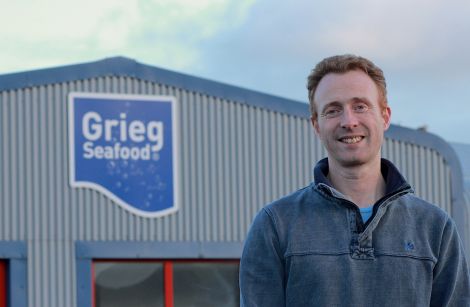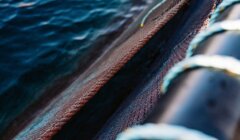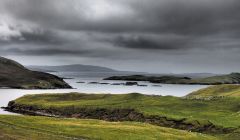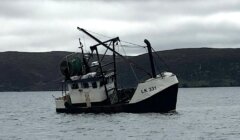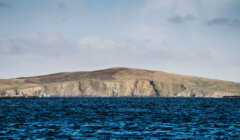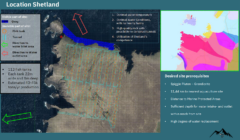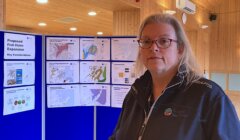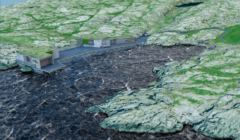Environment / Salmon farm company ‘still not where we want to be’ on sea lice levels
Grieg Seafood Shetland, however, have ‘seen improvements’
THE MANAGING director of a salmon farm company working in Shetland has admitted it is “not where we want to be” with regards to sea lice levels and escaping fish.
Grieg Seafood Shetland’s Grant Cumming was responding to a new set of recommendations issued via the Scottish Government to address the interactions between the farmed and wild salmon sectors.
Salmon farming had been identified as one of 12 pressures on populations of wild salmon.
One of the recommendations published is that Scotland’s finfish aquaculture regulatory regime should be reformed to ensure that it is fit for purpose, “comparable with the highest international and domestic regulatory standards”.
Another recommendation is that the Scottish Government should “holistically assess and review the approach to sea lice treatment, including access to medicines and the use of controls in their use, to deliver an evidence-based approach to sea lice control, whilst ensuring the protection of the wider environment and wild and farmed fish health and welfare”.
The report was created by the Salmon Interactions Working Group, which brings together salmon farmers, the wild fish sector and governmental bodies.
Grieg Seafood Shetland said that 80 per cent of wild salmon stocks are on the east coast of Scotland.
“Numbers there have declined steeply and there are no salmon farms on the east coast,” it said.
Cumming said salmon farmers have a responsibility to ensure “co-existence with wild salmon and to do what we can to avoid impacting them”.
“Grieg Seafood is working very hard to keep sea lice levels low, particularly by using preventative methods, and to avoid escapes,” he said.
“We have seen improvements, but are still not where we want to be, and we are continuing our strong efforts.
“Grieg Seafood welcomes the recommendations of the report. We are also pleased that the report has acknowledged and embedded many of the existing principles and procedures which we already practice.
“We look forward to the remaining 11 pressures on wild salmonids being addressed in a similar robust manner and hope that the combined efforts of all stakeholders will lead to a sustainable future for this iconic species.”
Become a member of Shetland News
Shetland News is asking its many readers to consider paying for membership to get additional features and services: -
- Remove non-local ads;
- Bookmark posts to read later;
- Exclusive curated weekly newsletter;
- Hide membership messages;
- Comments open for discussion.
If you appreciate what we do and feel strongly about impartial local journalism, then please become a member of Shetland News by either making a single payment, or setting up a monthly, quarterly or yearly subscription.






